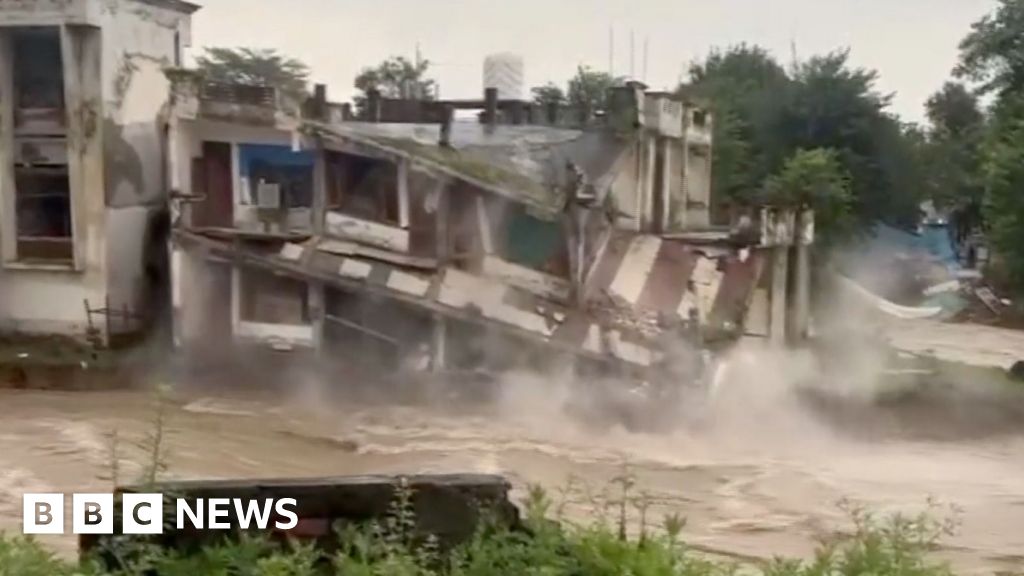An intense heatwave has gripped Kashmir, a region known for its majestic beauty and cooler climate, with temperatures soaring to unprecedented levels this month. Zaina Begum, a farmer in Pulwama district, stands disheartened beside her parched paddy field, having awaited rainfall for over a month. Although recent rains offered a glimmer of hope, Ms. Begum lamented, "It was already too late by then. Our land had completely dried up." Record-breaking heat has reached 37.4°C (99.32°F), marking the hottest June in 50 years and causing authorities to shut down educational institutions temporarily.
While some parts of the region have recently experienced relief through rain, experts warn that this will be short-lived, with hotter temperatures expected soon. Local farmers, who have historically depended on agriculture, are now facing dire conditions, with many witnessing deteriorating crop quality and significant economic losses. For five consecutive years, Ms. Begum has struggled to yield a healthy harvest from her one-acre paddy field, expressing that "It feels like our worst fears have come true. We have nothing left."
A broader trend within Kashmir's climate has emerged, as highlighted by a 2021 study indicating an increase in temperatures by 2°C from 1980 to 2020, translating to an alarming 0.5°C rise per decade. Mukhtar Ahmad, from the Indian weather department, indicated that this season alone has experienced three distinct heatwaves, drying up crucial rivers and streams. Farmers like Ali Mohammad, who transitioned from paddy to apple farming for better reliability, now find their orchards wilting under the relentless heat. "The orchards need water at least three times a month, but for the last two months, there has been no rain, and the irrigation canals have dried up," he shared.
The health consequences have also surfaced. Sixty-three-year-old Parveez Ahmad, unaccustomed to such extreme temperatures, experienced severe breathlessness that required hospitalization. Environmental experts attribute these climatic changes to larger global issues. Mohammad Farooq Azam, a glaciologist, noted that prolonged dry spells and erratic weather patterns point toward systemic changes with significant long-term effects on water security, agriculture, and biodiversity in the region.
In contrast to the region's minimal contribution to global carbon emissions, its residents are bearing the brunt of climate change consequences. Jasia Bashir, a professor involved in environmental studies, emphasized that Kashmir's actions contribute very little to the climate crisis, yet it suffers excessively from outside forces. Urbanization and deforestation have further exacerbated the climate issue, with a report indicating the loss of nearly 0.39% of Kashmir's tree cover between 2001 and 2023.
As energy demands rise, particularly for air conditioners during extreme heat, the cycle of emissions and warming continues relentlessly. Critics argue that environmental concerns often become sidelined in political discussions in the region. However, government spokesperson Tanvir Sadiq insisted that the administration takes climate change very seriously, stressing the need for collective global and local actions.
For farmers like Ms. Begum, however, the urgency is clear: "If we don’t act quickly, we will be doomed." The crisis in Kashmir epitomizes the broader implications of climate change, underscoring the pressing need for comprehensive responses to safeguard both health and agricultural futures.





















